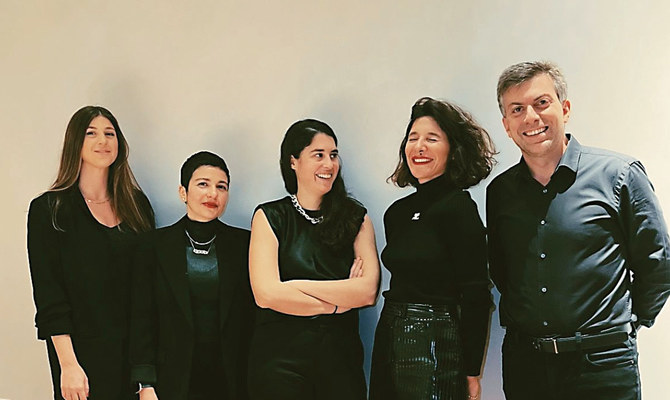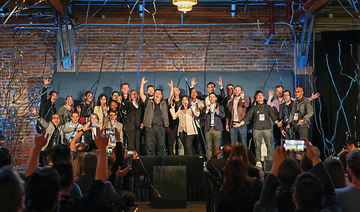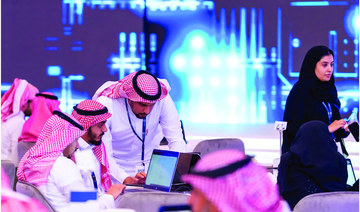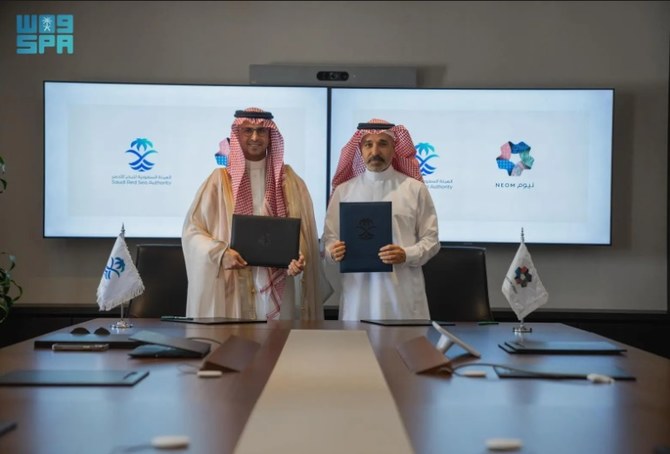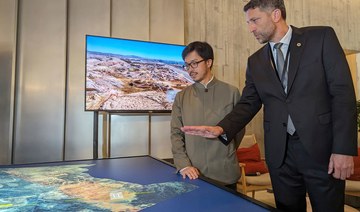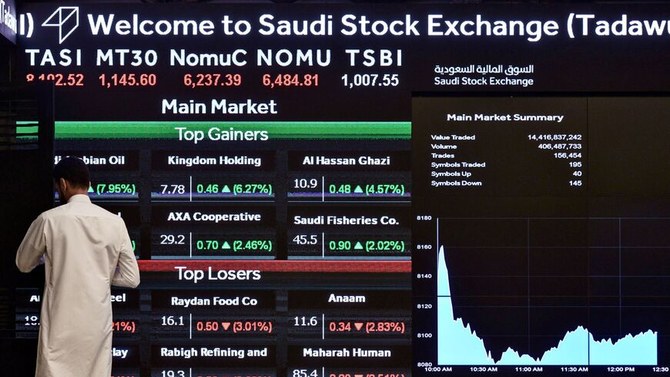CAIRO: Venture capitals focused on the Middle East and North Africa region have successfully refueled their tanks with multiple firms attracting new investments.
Female-led Lebanon-based Globivest announced its first closing for an undisclosed sum in its venture capital firm.
Reaching two-thirds of its target of $25 million to $30 million, the investment marks a significant milestone for the firm.
Established in 2016 by Jasmine Busson, the firm was originally founded as a family office with a keen interest in technology investments.
Over the past six years, Globivest has invested in 50 startups, building a network and gaining recognition from major ecosystem players, including Citi Ventures, Plug and Play, and Newfund, as well as Angelini Ventures, and Arab Angel Fund.
Last year, the company transitioned to an institutional venture capital firm targeting startups in critical areas such as social inclusion, education, health, and environmental sustainability.
“Challenges are where we find our strength. Facing constant difficulties and occasional paternalistic remarks only fuels our determination. We aim not only to establish our legitimacy in the industry but also to inspire more women and underrepresented individuals to tread a similar path,” Busson said in a statement.
The company has already embarked on its second closing.
ISSF invests $5m in MSA Novo’s MENA fund
China’s MSA Novo, has garnered $5 million in investment from the Jordan-based Innovative Startups and SMEs Fund, targeting startups with a focus on the MENA region.
This investment is poised to enhance the startup ecosystem in Jordan and the wider region, creating new opportunities and facilitating growth in a highly competitive environment.
Established in 2019, MSA Novo operates as a global venture capital firm, specializing in emerging technology sectors.
The firm boasts a diverse portfolio, featuring over 50 companies spread across the Middle East, Latin America, Africa, and South Asia.
The World Bank and the Central Bank of Jordan collaboratively launched the ISSF in 2017, aiming to bolster Jordanian startups through direct investments and contributions to venture capital funds.
“ISSF was one of the first regional sovereign investors to support MSA’s vision of bringing global institutional investing to the Middle East venture space,” Ben Harburg, MSA Novo managing partner, said.
“In the process, MSA generated hundreds of jobs in Jordan. We are honored to again receive the trust of this critical institution tasked with the development of the Jordanian technology and entrepreneurship ecosystem, and we look forward to robustly executing upon this mission in our new fund,” he added.
UAE launches $300m non-profit entity to boost open-source AI
The UAE’s Technology Innovation Institute, a cornerstone of Abu Dhabi’s Advanced Technology Research Council, announced the creation of the Falcon Foundation.
This non-profit entity, unveiled with a substantial endowment of $300 million, is set to spearhead the development of open-source generative artificial intelligence models.
Launched at the World Governments Summit 2024, the Falcon Foundation is poised to leverage TII’s proprietary Falcon AI models to establish and nurture sustainable ecosystems for open-source projects.
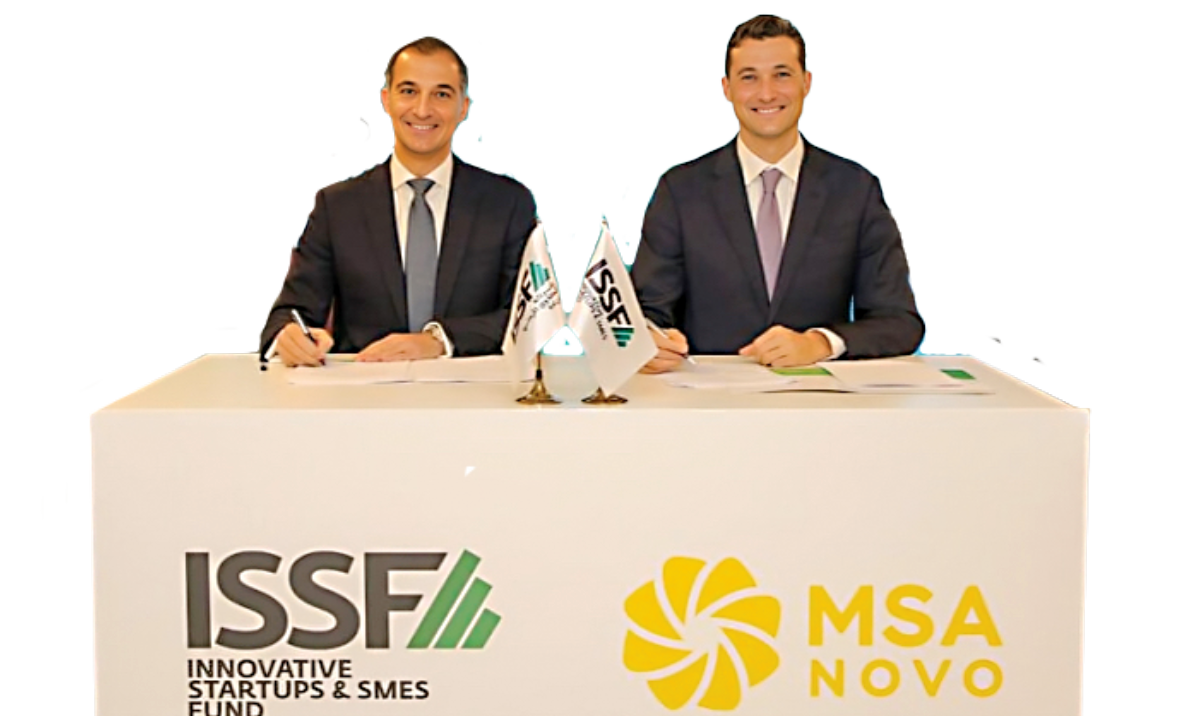
MSA Novo’s $5 million investment from Innovative Startups and SMEs Fund targets startups with a focus on the MENA region. (Supplied)
The foundation’s mission is to catalyze the pace of technological advancement by bringing together a diverse array of stakeholders, including developers, academic institutions, industry leaders, and individuals.
This endeavor aims to democratize access to cutting-edge technologies in the industry, ensuring a broad base of innovators and creators can contribute to and benefit from the advancements in generative AI.
“In a world where AI continues to advance at an unprecedented pace, initiatives like the Falcon Foundation play a crucial role in steering the trajectory of AI development towards greater transparency and accessibility,” Faisal Al-Bannai, secretary-general of ATRC, said.
The Falcon Foundation represents a significant step forward in the global pursuit of open and accessible technology development, emphasizing the UAE’s growing role as a hub for technological innovation and research.
“We’re committed to fostering transparency and collaboration in AI. Extending the UAE’s collaborative spirit into AI development, we set new standards for openness, and we encourage all other entities that support open source from around the world to join us,” Ray Johnson, CEO of TII, stated.
Morocco’s Logidoo raises $1.55m
Morocco-based Logidoo, a startup offering logistics solutions across Africa, has successfully raised $1.55 million in a funding round from a diverse group of investors.
The round saw participation from Morocco’s Maroc Numeric Fund II, Tunisia’s 216 Capital, and Ethiopia’s Gullit VC, as well as Nigeria’s Founders Factory Africa, Egypt’s Sunny Side Venture Partners, and Morocco’s Kalys Ventures.
Established in 2019 by Tamsir Ousmane Traore, Logidoo facilitates cross-border logistics for e-commerce entities, addressing a critical need in the rapidly growing digital marketplace in Africa.
This fresh infusion of capital marks a pivotal moment for the startup, enabling it to bolster its footprint across the continent.
With the new funds, Logidoo is set to expand its operations into key African markets, including Senegal, Morocco, Ivory Coast, and Tunisia.
UAE fintech Kema raises $2m in pre-seed round
Kema, a UAE-based fintech startup, has successfully closed a $2 million pre-seed funding round led by Speedinvest, with participation from the Dubai Future District Fund.
Founded in 2023 by Michael Ghandour, Kema offers a Software-as-a-Service platform designed to support the way business to business SMEs manage their finances.
By automating and accelerating cash flow processes, Kema not only saves businesses critical time but also significantly reduces operational costs.
The fresh capital infusion will be strategically utilized to further develop Kema’s SaaS platform, specifically tailored to meet the unique needs of the SME sector.
Additionally, the funds will enable Kema to expand its footprint across the UAE, reaching a broader segment of the market.



